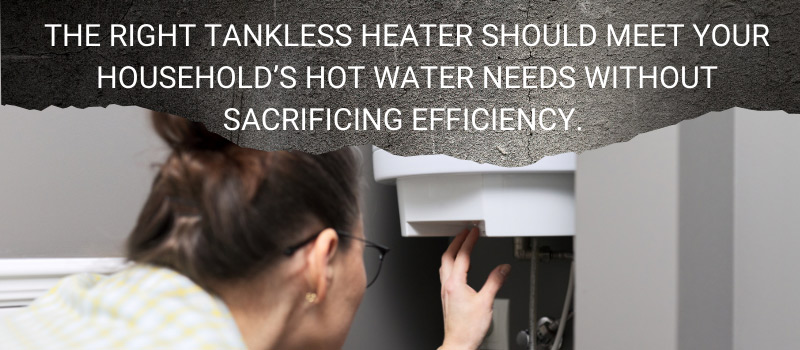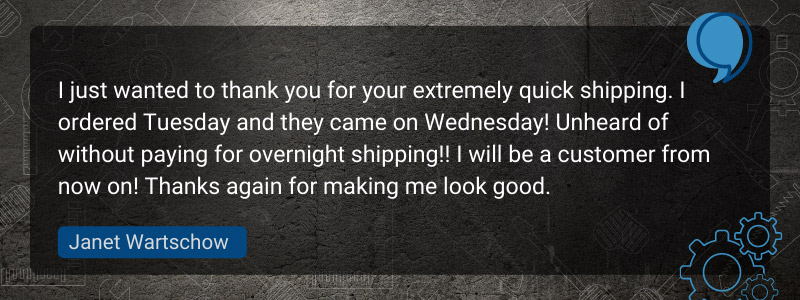
Tankless water heaters have many advantages over storage tank hot water heaters, but they’re more expensive to buy and install.
Are tankless water heaters worth their higher price points?
A tankless heater (also called an instantaneous water heater) supplies hot water immediately when needed. Heating occurs in seconds, and the flow is continuous.
While instantaneous water heaters have remarkable benefits, just like any other product, they also have drawbacks.
This guide explores pros and cons of tankless water heaters to help you make an informed buying decision. It will also probe into the crucial factors to consider when buying a tankless heater.
Tankless water heaters are more energy-efficient than storage tank heaters (tank-style).
Tank-style heaters consume more energy to maintain the desired temperatures in the water reservoir.
On the other hand, tankless heaters supply hot water on-demand with no standby energy loss common in storage tank heaters.
In short, an instantaneous water heater consumes energy sparingly, which will reduce energy bills in the long run.
But how much energy will you save by using a tankless heater?
It will depend on your heater’s efficiency and daily water usage.
According to the U.S. Department of Energy, if your daily hot water usage is 41 gallons or less, a tankless heater can be 24% – 34% more energy efficient than a tank-style water heater.
If you use around 86 gallons daily, an instantaneous water heater becomes 8% – 14% more energy efficient.
As a result, depending on your daily hot water usage, you can end up saving at least $100 per year on your energy bills.
Tank-style water heaters are limited by the size of their tanks. Once the hot water in the reservoir has depleted, you’ll have to wait for it to fill and the water heater again.
With tankless heaters, you’ll always get a continuous supply of hot water. That’s because they rapidly heat water (in seconds) without storing it in a reservoir, so you can have almost instant hot water access whenever you need it.
However, the amount of heated water you get from your taps is determined by the heater’s flow rate. As a result, you may be limited to the number of outlets operating at the same time. It is also important to note that a tankless water heater does not actually provide instant hot water the moment you open the tap, the hot water still needs some time to flow from the unit to the open tap or faucet.
If you have limited space in your home, tankless water heaters are suitable for you.
For example, a cylindrical 40 – 50 gallon tank-style heater can be 54 – 60 inches tall and 20 inches in diameter.
On the other hand, a rectangular tankless unit can be around 27 inches tall, 18 inches wide, and 10 inches high.
With such dimensions, tankless heaters have compact designs that can be mounted on the wall, saving valuable floor space.
Safety is a primary concern when installing a water heater in your home.
Tankless heaters are safer to use in three ways.
By not storing water, they minimize the risk of major leaks.
On the contrary, when the water reservoir of a tank-style heater corrodes, it can cause destructive leakages in your home.
Tankless heaters also have zero risk of storage tank explosions that result in equipment damage and injuries.
Most storage tank heaters have a temperature and pressure relief valve to prevent explosions in the water reservoir. However, minerals and sediments from hard water can clog up the valve, resulting in a pressure build-up that explodes the tank.
Tankless water heaters avoid this risk by eliminating the use of a water reservoir, which means zero chance of storage tank explosions.
Lastly, tankless water heaters minimize the risk of burns. That’s because they get installed on the wall (instead of the ground), reducing the possibility of human contact.
Most tankless water heaters can last for more than 20 years with proper maintenance and servicing.
They have easily replaceable parts in case of a breakdown, further extending their lifespan.
As a result, you save money on heater replacements.
Buying and installing a tankless water heater is expensive.
An instantaneous water heater’s estimated cost (buying + installation) is $3000, depending on the type, brand, and labor costs.
While tankless water heaters can continuously supply hot water, they offer a limited ability to send hot water to multiple outlets simultaneously.
That’s because if sized incorrectly for your flow requirements, the units can only heat so much water at a go. Hence, when you want to use several outlets, for instance, you run the dishwasher and washing machine and also take a hot shower, the water temperature may be inconsistent.
Fortunately, there are ways you can address this issue including getting a bigger water heater with higher flow rate. Or having more than one unit installed.
Unlike a tank-style heater that stores hot water to be used during a power outage, an instantaneous water heater lacks a storage tank, making it unreliable during power blackouts.
Here’s a detailed summary table of the benefits and drawbacks of tankless water heaters to further help you make an informed buying decision:
From the summary above, the strengths outweigh the weaknesses, which helps us to safely conclude that:
Before buying an instantaneous water heater, consider the following:

The right tankless heater should meet your household’s hot water needs without sacrificing efficiency.
When looking for the right size, consider these three aspects:
A tankless water heater uses either electricity or gas (typically gas in North America).
An electric-powered tankless heater exclusively uses electricity to operate.
On the other hand, gas tankless heaters burn fuel (propane or natural gas) to heat water. However, they still rely on electricity to power their control panels and/or control valves.
That said, which one should you choose?
If you use a lot of hot water daily and can easily access propane or natural gas, you should opt for a gas-powered tankless heater.
It supplies more hot water per minute (higher flow rate) than the electric ones. However, the installation process is complicated and expensive.
On the other hand, if you can’t easily access natural gas or you’re looking for a fast and affordable installation, electric tankless heaters are your best choice.
An instantaneous water heater has an energy label estimating its efficiency and annual operational cost.
Use the estimations to evaluate your options in the market, then choose the most energy-saving tankless water heater.
At Industrial Stores, we’re different from the competition.
Here’s why:
We strive to bring the human factor into online selling. Our dedicated and friendly customer care team will address all your needs and give you a smooth buying experience.

We understand that quality is your primary concern when buying industrial supplies, and that’s why we only deal with trustworthy brands with a keen attention to quality.
We also do our best to deliver orders as fast as possible.
Here’s what a verified buyer said about us:
“I just wanted to thank you for your extremely quick shipping. . . I ordered (6) RIBs on Tuesday and they came on Wednesday! Unheard of without paying for overnight shipping!! I will be a customer from now on! Thanks again for making me look good. :-)”
Janet Wartschow, Connecticut, USA
For more inquiries, feel free to visit our online store or contact us today.